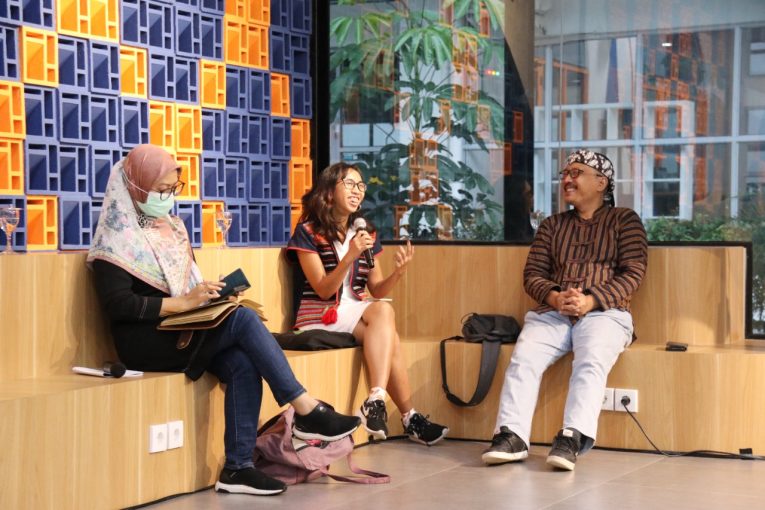
Yogyakarta, October 7th 2022—The Faculty of Social and Political Sciences (FISIPOL) UGM held a series of events to commemorate its 67th Dies Natalis. One of the events was the Alumni Talk which was held on Friday (7/10) at the BRIWork Amphitheater in a hybrid manner. In accordance with the big theme of the Dies Natalis regarding the climate crisis, the Alumni Talk event raised the topic ‘Want to Care for the Environment, Where to Start?’
Of course, various speakers as well as alumni of FISIPOL UGM who are involved in environmental issues presented in this event, namely Kuntum Melati from the Stockholm Environment Institute; Erwan Widyarto from the DIY Garbage Bank Association, and the manager of the Griya Sapu Lidi Garbage Bank; Anak Agung Istri Tatik Rismayanti from the Bali Environmental Education Center; and moderated by Fina Itriyati, Deputy Dean of FISIPOL.
Responding to a question that became the topic of this event, Erwan gave a simple answer: “Starting with yourself, starting with small things, starting from now,” he said. However, individual waste management is not enough. Therefore, waste management must be a collective movement. The same thing is applied by him in managing the waste bank. The network that was later formed between waste banks in Yogyakarta is important for the development and improvement of the role of waste banks.
Erwan also explained further about the misunderstanding in the understanding of waste management. “The term ‘throwing garbage in its place’ is wrong, because what happens is that people only move garbage from their homes to the Final Disposal Site (TPA),” said Erwan.
Just like Erwan, Gungtik is also involved in the world of waste management. Gungtik met Gungtik in various areas in Bali with the misunderstanding of the waste problem conveyed by Erwan. Therefore, one of the programs he is currently running aims to encourage the community to be responsible and wise towards the waste they produce through the zero waste movement and the circular method.
“The application of a zero waste system can reduce the impact of waste on climate change by 84%,” explained Gungtik. She closed her presentation with six simple ways to change people’s mindsets that can reduce waste production, namely by rethinking, reuse, reduce, repair, refuse, and recycle.
Kuntum explained further about environmental issues structurally. Environmental issues do not always talk about the environment but also social, economic, and cultural aspects. Unlike the previous two speakers, Kuntum is more focused on research and environmental policy studies. “To influence actors and stakeholders who can have an influence on environmental policy,” said Kuntum.
